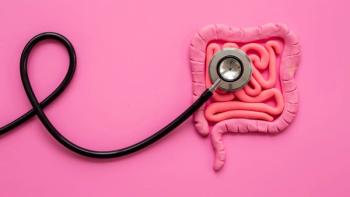
Lonsurf: What to Expect
John L. Marshall, MD: Welcome to Georgetown Lombardi Comprehensive Cancer Center. Your physician has just recommended a new medicine for metastatic colon cancer for you called TAS-102, or Lonsurf. And, it’s a new medicine that’s out there and we want to give you a little sense of how we manage that with our patients here. Dr. Salem, let me start with you. Tell our patients out there what to expect, how we educate our patients around this new medicine.
Mohamed E. Salem, MD: The first step is we have to teach patients how they take the medicine; how many and how often. So, we’ll go in details with the schedule, with the pills, and even advise them to have a calendar to write the dates on. We always advise patients if they miss a dose, they don’t try to make up that dose. Lonsurf, in general, is well tolerated, so maybe you’re not going to feel much; maybe perhaps a little bit nausea or diarrhea. I advise them to have nausea medicine on hand, and also to be proactive and take it the minute they feel anything. But, I think the main thing is communication. They need to tell us or call us right away if they feel anything abnormal, not the way they usually feel.
John L. Marshall, MD: So, even though there’s not much risk of acute side effects, maybe a little nausea, maybe some diarrhea, if anything happens, call.
Mohamed E. Salem, MD: Please, yes. We always encourage them. But, the most important thing also is they need to come on the scheduled appointment because there is a follow-up lab. We need to check in on the white blood cells and red blood cells, to make sure things are going okay. Also, fever is a very big sign. We like to hear from patients if they experience fever, so I ask them to have a thermometer at home. I even teach them what a fever means.
John L. Marshall, MD: This is one of the first medicines these patients might have had that has really strong effects on their white cell count, that lower their white cell count, because most of our colon cancer drugs have a little bit, not a lot. So, when you talk about fever, I usually use 100.5. Is that more or less what you use?
Mohamed E. Salem, MD: I use the same thing, but I found most of my clinic, even myself, have forgotten that 0.5, so I make it 100 actually.
John L. Marshall, MD: Make it 100.
Mohamed E. Salem, MD: Yes, 100 is just easier to remember.
John L. Marshall, MD: And I always tell my patients that it always happens in the afternoon or evening. We’ve gone home, one of our team members is on call. They’re going to call in and tell the team member that they have a temperature, a fever. That doctor is going to recommend that you go to the emergency room to have a CBC (complete blood count) drawn. And depending on what that looks like, then you may need to come in to the hospital for IV antibiotics. But, the important piece is that doesn’t happen very often with this drug. The counts go down, but very rarely do they get fever.
Mohamed E. Salem, MD: No, it’s very rare. I think it was about 4% in the study, but I think it’s always important because we can be proactive and take measures that may save problems after that.
John L. Marshall, MD: Monica, often the first oral medicine for patients with refractory colon cancer. What do you emphasize when you talk with our patients?
Monica Chacha, RN: So, this medication can be a little bit confusing sometimes for people with the dosing. They’re used to having maybe an infusion nurse at the infusion center giving the medication. Whereas now, they’re at home, they have to do this. I think the most important thing I stress is that they should write down their schedule, or usually I write it down for them, when they’re supposed to take the medication and the days that they’re supposed to take it off. And the most important thing I tell them is to communicate. If they get confused about their schedule, if they’re having any side effects, they have my number, they have my e-mail, I want to hear from them.
John L. Marshall, MD: And, that schedule is 5 days on, 2 days off, 5 days on, 2 days off, 2 weeks off. So, it’s 10 days’ worth. And it’s twice a day, so morning and night. It’s important about taking that around food, as well, because it changes how we dose. Follow the recommendations there. Watch out for fever, a little bit of nausea. Come on your 2-week visit to get your blood test. Don’t be crazy about your temperature, but check it and report anything right away. Don’t wait until that follow-up visit. That’s the Lombardi Georgetown secret for managing TAS-10, or Lonsurf.




